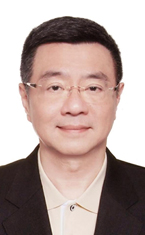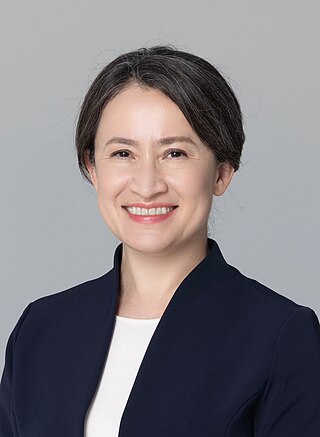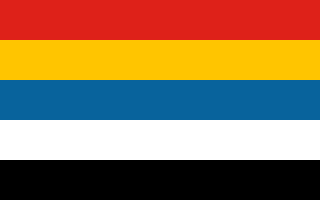
Taiwan, officially the Republic of China (ROC), is governed in a framework of a representative democratic republic under a five-power system first envisioned by Sun Yat-sen in 1906, whereby under the constitutional amendments, the President is head of state and the Premier is head of government, and of a multi-party system. Executive power is exercised by the Executive Yuan. Legislative power is vested primarily in the Legislative Yuan. The judiciary is independent of the executive and the legislature. In addition, the Examination Yuan is in charge of validating the qualification of civil servants, and the Control Yuan inspects, reviews, and audits the policies and operations of the government.

The president of the Republic of China, also referred to as the president of Taiwan, is the head of state of the Republic of China (Taiwan) as well as the commander-in-chief of the Republic of China Armed Forces. The position once had authority of ruling over Mainland China before 1949, but its remaining jurisdictions has been limited to Taiwan, Penghu, Kinmen, Matsu, and other smaller islands since the conclusion of the Chinese Civil War.

The Legislative Yuan is the unicameral legislature of the Republic of China (Taiwan) located in Taipei. The Legislative Yuan is composed of 113 members, who are directly elected for four-year terms by people of the Taiwan Area through a parallel voting system.
A presidency is an administration or the executive, the collective administrative and governmental entity that exists around an office of president of a state or nation. Although often the executive branch of government, and often personified by a single elected person who holds the office of "president", in practice, the presidency includes a much larger collective of people, such as chiefs of staff, advisers and other bureaucrats. Although often led by a single person, presidencies can also be of a collective nature, such as the presidency of the European Union is held on a rotating basis by the various national governments of the member states. Alternatively, the term presidency can also be applied to the governing authority of some churches, and may even refer to the holder of a non-governmental office of president in a corporation, business, charity, university, etc. or the institutional arrangement around them. For example, "the presidency of the Red Cross refused to support his idea." Rules and support to discourage vicarious liability leading to unnecessary pressure and the early termination of term have not been clarified. These may not be as yet supported by state let initiatives. Contributory liability and fraud may be the two most common ways to become removed from term of office and/or to prevent re-election.

The National Assembly was the authoritative legislative body of the Republic of China, from 1947 to 2005. Along with the Control Yuan and the Legislative Yuan, the National Assembly formed the tricameral parliament of the Republic of China.

The Constitution of the Republic of China is the fifth and current constitution of the Republic of China (ROC), ratified by the Kuomintang during the Constituent National Assembly session on 25 December 1946, in Nanjing, and adopted on 25 December 1947. The constitution, along with its Additional Articles, remains effective in ROC-controlled territories.

The premier of the Republic of China, officially the president of the Executive Yuan, is the head of the government of the Republic of China of Taiwan and leader of the Executive Yuan. The premier is nominally the principal advisor to the president of the republic and positioned as the head of central government.
The Executive Yuan is the executive branch of the government of the Republic of China (Taiwan). Under the amended constitution, the head of the Executive Yuan is the Premier who is positioned as the head of government and has the power to appoint members to serve in the cabinet, while the ROC President is the head of state under the semi-presidential system, who can appoint the Premier and nominate the members of the cabinet. The Premier may be removed by a vote of no-confidence by a majority of the Legislative Yuan, after which the President may either remove the Premier or dissolve the Legislative Yuan and initiate a new election for legislators.

The Judicial Yuan is the judicial branch of the government of Taiwan. It runs a Constitutional Court and oversees all systems of courts of Taiwan, including ordinary courts like the supreme court, high courts, district courts as well as special courts like administrative courts and disciplinary courts. By Taiwanese law, the Judicial Yuan holds the following powers:

The Control Yuan is the supervisory and auditory branch of the government of the Republic of China, both during its time in mainland China and Taiwan.
The Examination Yuan is the civil service commission branch, in charge of validating the qualification of civil servants, of the government of the Republic of China (Taiwan). It has a president, a vice president, and seven to nine members, all of whom are nominated by the president of the republic and confirmed by the Legislative Yuan for four-year terms according to Republic of China laws.

Taiwan Provincial Government is the nominal government of Taiwan Province in the Republic of China. Since 2018, its functions have been transferred to the National Development Council and other ministries of the Executive Yuan.

Hsiao Bi-khim is a Taiwanese politician and diplomat. She is the incumbent vice president of Taiwan after winning the 2024 Taiwanese presidential election, and is Taiwan's first biracial vice president. She was the Taiwanese representative to the United States from 2020 to 2023, and formerly served as a legislator of the Legislative Yuan from 2002 to 2008 and again between 2012 and 2020.

The vice president of the Republic of China, commonly referred to as the vice president of Taiwan, is the second-highest constitutional office of the Republic of China, commonly called Taiwan.

The Beiyang government was the internationally recognized government of the Republic of China between 1912 and 1928, based in Beijing. It was dominated by the generals of the Beiyang Army, giving it its name.
Yuan Baohua was a Chinese economic official and academic administrator. He served as Vice Minister of the Ministry of Metallurgy Industry, Minister of the Ministry of Materials, Executive Vice Director of the State Planning Commission, and Director of the State Economic Commission. From 1985 to 1991, he served as President of Renmin University of China. He was a mentor of Zhu Rongji, the former Premier of China.

The Government of the Republic of China, is the national authority whose actual-controlled territory consists of main island of Taiwan (Formosa), Penghu, Kinmen, Matsu, and other island groups, collectively known as Taiwan Area or Free Area. A unitary state, the ROC government, under the current constitutional amendments, is run by a de facto semi-presidential system, consists of the presidency and five branches (Yuan): the Executive Yuan, Legislative Yuan, Judicial Yuan, Examination Yuan, and Control Yuan. The president is the head of state, with the premier as the head of government, currently ruled by the Democratic Progressive Party (DPP) since 2016. Since the 2005 amendments of the Additional Articles of the Constitution, the Legislative Yuan has been the de facto unicameral parliamentary body of the country.

Lien Chen-tung was a Chinese statesman and politician who was the tenth Republic of China Minister of the Interior. Lien was also the first official county magistrate of Taipei County, a representative of the National Assembly, a member of the Executive Yuan, and a national policy advisor to the Office of the President. His son Lien Chan was the seventh Vice President of the Republic of China and a former Chairman of the Kuomintang.













